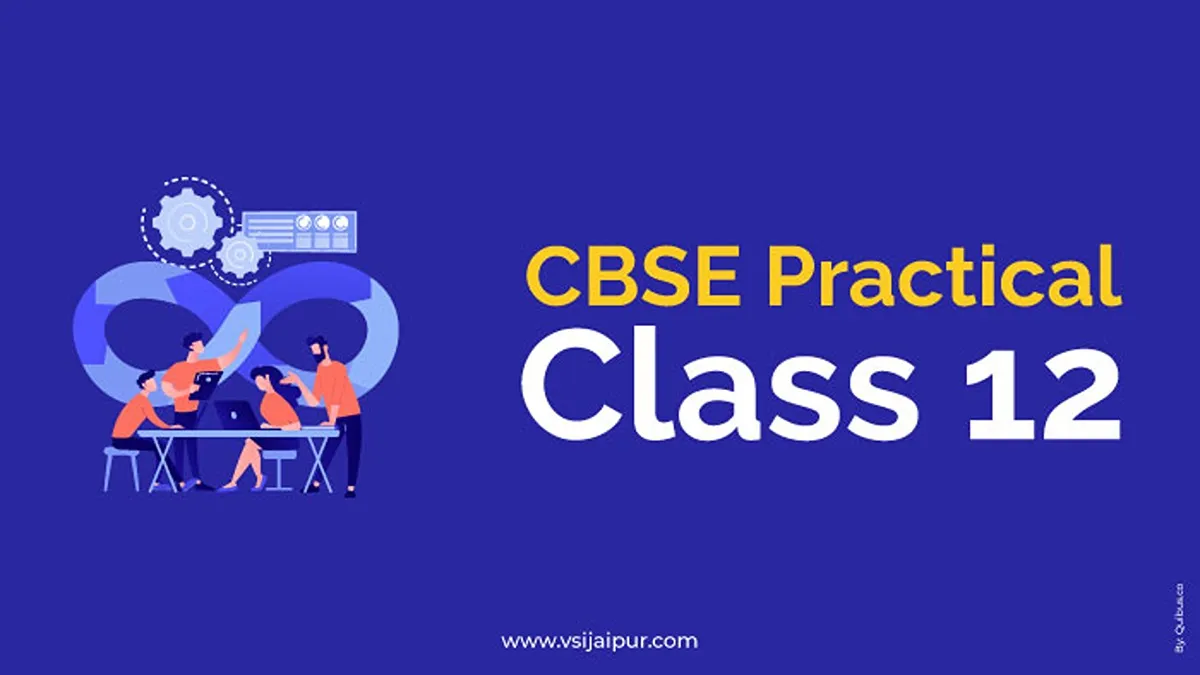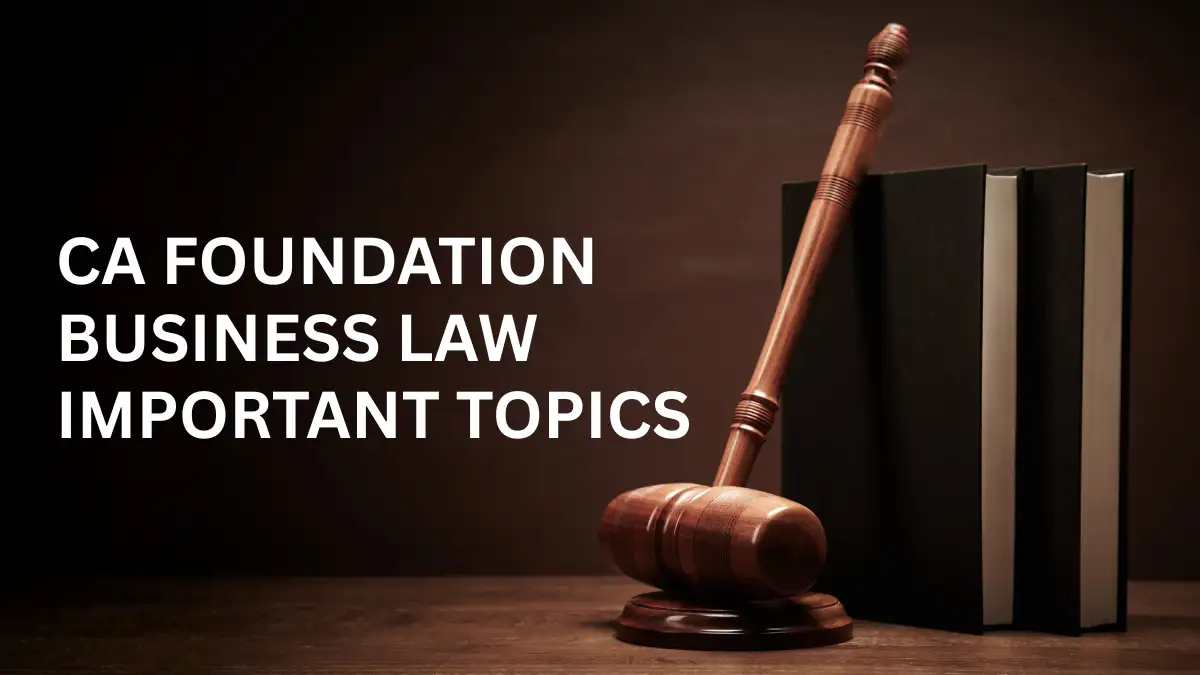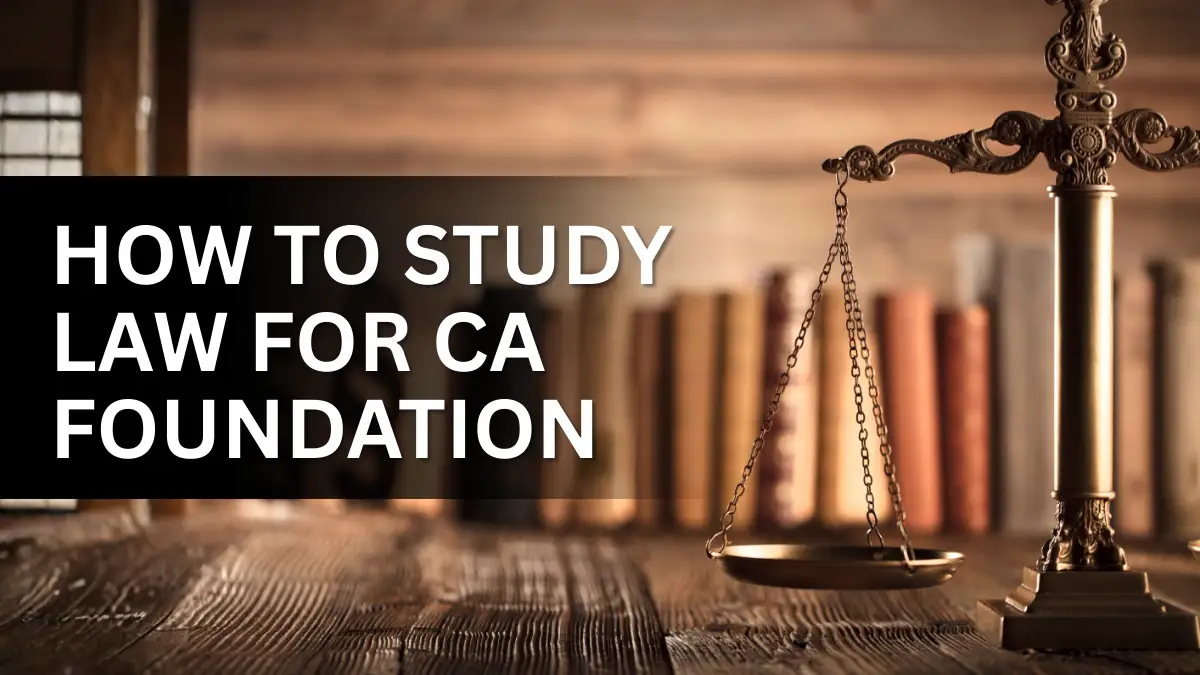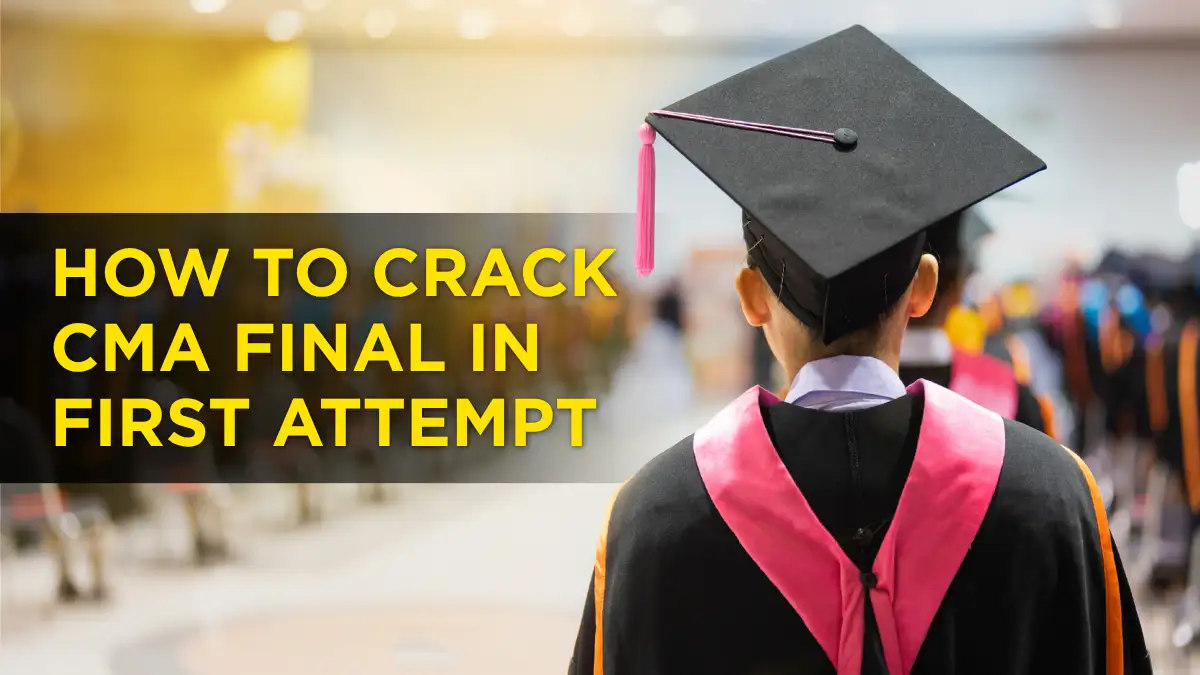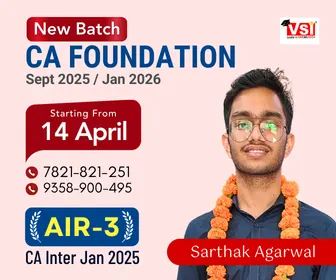CA Wizard here brings the complete guide to CBSE Practical for Class 12 students. Along with the theory syllabus and marking scheme, the practical exam syllabus and marking scheme is also given by CBSE. We have shared the complete details for CBSE Class 12 practical of Physics, Biology, Chemistry, Accountancy, Business Studies, Economics, Entrepreneurship, Geography, Psychology, etc. You can also read the CBSE guidelines/general details for the practical exams in this article.
CA Wizard is the best resource library for CBSE class 12 students. We help students shape their careers after class 12th and build a successful profession. Also, students interested in pursuing CA as a career can gain all the information on the CA Wizard.
We also recommend the commerce students to join the join the 12th commerce classes on time for the better preparation of exams.
Class 12 CBSE Practical Exams
As the CBSE curriculum for 2023-24 is revised, slight changes were also made in the syllabus for practical exams. The CBSE Class 12 practical exams are very easy and scoring. If you perform well in practical, you can improve your overall grades too. In these tough situations, class 12th students can expect even more leniency in the 2023-24 exams.
CBSE Guidelines/Instructions
The CBSE class 12 practical are held in the schools itself with an internal and external examiner.
The question papers are designed by the external teachers, and the marks are also given by them.
The practical marks are added to your mark sheet with the theory papers.
CBSE Class 12 Practical Syllabus and Marking Scheme 2023-24
CBSE Class 12 Accountancy Practical
From session 2023-24 onwards, there would be only ONE project (specific) to be prepared. Note: Kindly refer to the related Guidelines published by the CBSE. You can find them in the CBSE books.
| Project Work | Marks |
|---|---|
| Practical File | 4 |
| Practical Examination | 12 |
| Viva Voce | 4 |
| Total | 20 |
CBSE Class 12 Economics Practical
Scope of Project:
- Choose a title/topic
- Collection of the research material/data
- Organization of material/data
- Present material/data
- Analysing the material/data for conclusion
- Draw the relevant conclusion
- Presentation of the Project Work
Expected Checklist:
- Introduction of topic/title
- Identifying the causes, consequences and/or remedies
- Various stakeholders and effect on each of them
- Advantages and disadvantages of situations or issues identified
- Short-term and long-term implications of economic strategies suggested in the course of research
- Validity, reliability, appropriateness and relevance of data used for research work and for presentation in the project file
- Presentation and writing that is succinct and coherent in project file
- Citation of the materials referred to, in the file in footnotes, resources section, bibliography etc.
Suggestive List of Projects:
- Micro and Small Scale Industries
- Food Supply Channel in India
- Contemporary Employment situation in India
- Disinvestment policy of the government
- Goods and Services Tax Act and its Impact on GDP
- Health Expenditure (of any state)
- Human Development Index
- Inclusive Growth Strategy
- Self-help group
- Trends in Credit availability in India
- Monetary policy committee and its functions
- Role of RBI in Control of Credit
- Government Budget & its Components
- Trends in budgetary condition of India
- Exchange Rate determination – Methods and Techniques
- Currency War – reasons and repercussions
- Livestock – Backbone of Rural India
- Alternate fuel – types and importance
- Sarwa Siksha Abhiyan – Cost Ratio Benefits
- Golden Quadrilateral- Cost ratio benefit
- Minimum Support Prices
- Relation between Stock Price Index and Economic Health of Nation
- Waste Management in India – Need of the hour
- Minimum Wage Rate – approach and Application
- Digital India- Step towards the future
- Rain Water Harvesting – a solution to water crises
- Vertical Farming – an alternate way
- Silk Route- Revival of the past
- Make in India – The way ahead
- Bumper Production- Boon or Bane for the farmer
- Rise of Concrete Jungle- Trend Analysis
- Organic Farming – Back to the Nature
- Any other newspaper article and its evaluation on basis of economic principles
- Any other topic
Mode of presentation/submission of the Project:
At the end of the stipulated term, each learner will present the research work in the Project File to the External and Internal examiner. The questions should be asked from the Research Work/ Project File of the learner. The Internal Examiner should ensure that the study submitted by the learner is his/her own original work. In case of any doubt, authenticity should be checked and verified.
| S.No | Evaluation Scheme | Marks |
|---|---|---|
| 1 | Relevance of the topic | 3 |
| 2 | Knowledge Content/Research Work | 6 |
| 3 | Presentation Technique | 3 |
| 4 | Viva-voce | 8 |
| Total | 20 |
CBSE Class 12 Business Studies Practical
Students must take any one topic during the academic session of Class XI.
Objectives
After doing the Project Work in Business Studies, the students will be able to do the following:
- develop a practical approach by using modern technologies in the field of business and management;
- get an opportunity for exposure to the operational environment in the field of business management and related services;
- inculcate important skills of team work, problem solving, time management, information collection, processing, analysing and synthesizing relevant information to derive meaningful conclusions
- get involved in the process of research work; demonstrate his or her capabilities while working independently and
- make studies an enjoyable experience to cherish.
The complete details of the above projects are available on the revised CBSE Business Studies Syllabus 2023-24.
| S.No | Evaluation Scheme | Marks |
|---|---|---|
| 1 | Initiative, cooperativeness and participation | 2 |
| 2 | Creativity in presentation | 2 |
| 3 | Content, observation and research work | 4 |
| 4 | Analysis of situations | 4 |
| 5 | Viva | 8 |
| Total | 20 |
CBSE Class 12 Maths Practical
| Internal Assessment | Marks |
|---|---|
| Periodic Tests (Best 2 out of 3 tests conducted) | 10 |
| Mathematics Activities | 10 |
| Total | 20 |
Assessment of Activity Work:
Throughout the year any 10 activities shall be performed by the student from the activities given in the NCERT Laboratory Manual for the respective class ( XI or XII) which is available on the link : http://www.ncert.nic.in/exemplar/labmanuals.htmla record of the same may be kept by the student. An year end test on the activity may be conducted.
The weightage are as under:
The activities performed by the student throughout the year and record keeping : 5 marks
Assessment of the activity performed during the year end test: 3 marks
Viva-voce : 2 marks
CBSE Class 12 Entrepreneurship Practical
You need to work on two projects for this subject.
| Evaluation Scheme | Marks |
|---|---|
| Project 1 (Business Plan) | 10 |
| Project 2 (Market Survey) | 10 |
| Numerical Assessment | 5 |
| Viva | 5 |
| Total | 30 |
Note: Guidelines for both projects are given in the CBSE Textbook.
CBSE Class 12 Computer Science Practical
Suggested Practical List:
Python Programming
- Read a text file line by line and display each word separated by a #.
- Read a text file and display the number of vowels/consonants/uppercase/lowercase characters in the file.
- Remove all the lines that contain the character ‘a’ in a file and write it to another file.
- Create a binary file with name and roll number. Search for a given roll number and display the name, if not found display appropriate message.
- Create a binary file with roll number, name and marks. Input a roll number and update the marks.
- Write a random number generator that generates random numbers between 1 and 6 (simulates a dice).
- Write a Python program to implement a stack using list.
- Create a CSV file by entering user-id and password, read and search the password for given user id.
Database Management
- Create a student table and insert data. Implement the following SQL commands on the student table: ALTER table to add new attributes / modify data type / drop attribute UPDATE table to modify data ORDER By to display data in ascending / descending order DELETE to remove tuple(s) GROUP BY and find the min, max, sum, count and average
- Similar exercise may be framed for other cases.
- Integrate SQL with Python by importing the MySQL module.
Project
The aim of the class project is to create something that is tangible and useful using Python / Python and SQL connectivity. This should be done in groups of two to three students and should be started by students at least 6 months before the submission deadline. The aim here is to find a real world problem that is worthwhile to solve.
Students are encouraged to visit local businesses and ask them about the problems that they are facing. For example, if a business is finding it hard to create invoices for filing GST claims, then students can do a project that takes the raw data (list of transactions), groups the transactions by category, accounts for the GST tax rates, and creates invoices in the appropriate format. Students can be extremely creative here. They can use a wide variety of Python libraries to create user friendly applications such as games, software for their school, software for their disabled fellow students, and mobile applications. Of course to do some of these projects, some additional learning is required; this should be encouraged. Students should know how to teach themselves.
The students should be sensitized to avoid plagiarism and violations of copyright issues while working on projects. Teachers should take necessary measures for this.
| S.No | Practicals Evaluation Scheme | Marks |
|---|---|---|
| 1 | Lab Test Python program (60% logic + 20% documentation + 20% code quality) Small Python program that sends a SQL query to a database and displays the result. A stub program can be provided. | 12 |
| 2 | Report File + Viva Report file: Minimum 20 Python programs 7 marks | 7 |
| 3 | Project (that uses most of the concepts that have been learnt See CS-XII for the rules regarding the projects) | 8 |
| 4 | Viva voce | 3 |
| Total | 30 |
CBSE Class 12 Information Practices Practical
Suggested Practical List
Data Handling
- Create a panda’s series from a dictionary of values and a ndarray
- Given a Series, print all the elements that are above the 75th percentile.
- Create a Data Frame quarterly sales where each row contains the item category, item name, and expenditure. Group the rows by the category and print the total expenditure per category.
- Create a data frame for examination result and display row labels, column labels data types of each column and the dimensions
- Filter out rows based on different criteria such as duplicate rows.
- Importing and exporting data between pandas and CSV file.
Visualization
- Given the school result data, analyses the performance of the students on different parameters, e.g subject wise or class wise.
- For the Data frames created above, analyze, and plot appropriate charts with title and legend.
- Take data of your interest from an open source (e.g. data.gov.in), aggregate and summarize it. Then plot it using different plotting functions of the Matplotlib library.
Data Management
- Create a student table with the student id, name, and marks as attributes where the student id is the primary key.
- Insert the details of a new student in the above table.
- Delete the details of a student in the above table.
- Use the select command to get the details of the students with marks more than 80.
- Find the min, max, sum, and average of the marks in a student marks table.
- Find the total number of customers from each country in the table (customer ID, customer Name, country) using group by.
- Write a SQL query to order the (student ID, marks) table in descending order of the marks.
| S.No | Practicals | Marks |
|---|---|---|
| 1 | Problem solving using Python programming language | 11 |
| 2 | Creating database using MySQL and performing Queries | 7 |
| 3 | Practical file (minimum of 14 python programs, and 14 SQL queries) | 7 |
| 4 | Viva-Voce | 5 |
| Total | 30 |
CBSE Chemistry Practical Class 12
| Practical Evaluation Scheme | Marks |
|---|---|
| Volumetric Analysis | 8 |
| Salt Analysis | 8 |
| Content Based Experiment | 6 |
| Project Work | 4 |
| Class record and viva | 4 |
| Total | 30 |
Micro-chemical methods are available for several of the practical experiments. Wherever possible, such techniques should be used.
- Surface Chemistry
(a) Preparation of one lyophilic and one lyophobic sol Lyophilic sol – starch, egg albumin and gum Lyophobic sol – aluminium hydroxide, ferric hydroxide, arsenous sulphide.
(b) Dialysis of sol-prepared in (a) above.
(c) Study of the role of emulsifying agents in stabilizing the emulsion of different oils.
- Chemical Kinetics
(a) Effect of concentration and temperature on the rate of reaction between Sodium Thiosulphate and Hydrochloric acid.
(b) Study of reaction rates of any one of the following:
(i) Reaction of Iodide ion with Hydrogen Peroxide at room temperature using different concentration of Iodide ions.
(ii) Reaction between Potassium Iodate, (KIO3) and Sodium Sulphite: (Na2SO3) using starch solution as indicator (clock reaction).
- Thermochemistry
Any one of the following experiments
- i) Enthalpy of dissolution of Copper Sulphate or Potassium Nitrate.
- ii) Enthalpy of neutralization of strong acid (HCI) and strong base (NaOH).
iii) Determination of enthaply change during interaction (Hydrogen bond formation) between Acetone and Chloroform.
- Electrochemistry Variation of cell potential in Zn/Zn 2+|| Cu2+/Cu with change in concentration of electrolytes (CuSO4 or ZnSO4) at room temperature.
- Chromatography
- i) Separation of pigments from extracts of leaves and flowers by paper chromatography and determination of Rf values.
- ii) Separation of constituents present in an inorganic mixture containing two cations only (constituents having large difference in Rf values to be provided).
- Preparation of Inorganic Compounds Preparation of double salt of Ferrous Ammonium Sulphate or Potash Alum. Preparation of Potassium Ferric Oxalate.
- Preparation of Organic Compounds Preparation of any one of the following compounds
- i) Acetanilide
- ii) Di -benzalAcetone
iii) p-Nitroacetanilide
- iv) Aniline yellow or 2 – Naphthol Anilinedye.
- Tests for the functional groups present in organic compounds: Unsaturation, alcoholic, phenolic, aldehydic, ketonic, carboxylic and amino (Primary) groups.
- Characteristic tests of carbohydrates, fats and proteins in pure samples and their detection in given foodstuffs.
- Determination of concentration/ molarity of KMnO4 solution by titrating it against a standard solution of:
- i) Oxalic acid,
- ii) Ferrous Ammonium Sulphate (Students will be required to prepare standard solutions by weighing themselves).
- Qualitative analysis Determination of one cation and one anion in a given salt. Cation : Pb2+, Cu2+ As3+, Aℓ3+, Fe3+, Mn2+, Zn2+, Cu2+, Ni2+, Ca2+, Sr2+, Ba2+, Mg2+ , NH4 + Anions: (CO3) 2- , S2- , (SO3) 2- , (NO2) – , (SO4) 2- , Cℓ – , Br- , I- , PO3- 4, (C2O4) 2- , CH3COO- ,NO3 – (Note: Insoluble salts excluded)
PROJECT
Scientific investigations involving laboratory testing and collecting information from other sources
A few suggested Projects.
Study of the presence of oxalate ions in guava fruit at different stages of ripening.
Study of quantity of casein present in different samples of milk.
Preparation of soybean milk and its comparison with the natural milk with respect to curd formation, effect of temperature, etc.
Study of the effect of Potassium Bisulphate as food preservative under various conditions (temperature, concentration, time, etc.)
Study of digestion of starch by salivary amylase and effect of pH and temperature on it. Comparative study of the rate of fermentation of following materials: wheat flour, gram flour, potato juice, carrot juice, etc.
Extraction of essential oils present in Saunf (aniseed), Ajwain (carum), Illaichi (cardamom).
Study of common food adulterants in fat, oil, butter, sugar, turmeric power, chilli powder and pepper.
Note: Any other investigatory project, which involves about 10 periods of work, can be chosen with the approval of the teacher.
CBSE Biology Practical Class 12
| Evaluation Scheme | Marks | |
|---|---|---|
| One Major Experiment (Experiment No- 5,6) | 5 | |
| One Minor Experiment (Experiment No- 2,3) | 4 | |
| Slide Preparation (Experiment No- 1, 4) | 5 | |
| Spotting | 7 | |
| Practical Record + Viva Voce | Credit to the students’ work over the academic session may be given | 4 |
| Investigatory Project and its Record + Viva Voce | 5 | |
| TOTAL MARKS | 30 |
- Study of flowers adapted to pollination by different agencies (wind, insects).
- Identification of T.S of morula or blastula of frog (Model).
- Study of Mendelian inheritance pattern using beads/seeds of different sizes/texture.
- Preparation of pedigree charts of genetic traits such as rolling of tongue, colour blindness.
- Study of emasculation, tagging and bagging by trying out an exercise on controlled pollination.
- Identify common disease causing organisms like Ascaris (model)and learn some commonsymptoms of the disease that they cause.
- Comment upon the morphological adaptations of plants found in xerophytic conditions.
CBSE Physics Practical Class 12
| Evaluation Scheme | Marks |
|---|---|
| Two experiments one from each section | 8+8 |
| Marks Practical record (experiment and activities) | 7 |
| Marks Viva on experiments, and activities | 7 |
| Total | 30 |
The record to be submitted by the students at the time of their annual examination has to include:
Record of at least 8 Experiments [with 4 from each section], to be performed by the students.
Record of at least 6 Activities [with 3 each from section A and section B], to be demonstrated by teacher.
The list of experiments and activities is available on the revised syllabus of Physics.
CBSE Class 12 Biotechnology Practical
Note: Every student will be required to do the following experiments during the academic session.
- Use of special equipment in biotechnology experiments
- Isolation of bacterial plasmid DNA
- Detection of DNA by gel electrophoresis
- Estimation of DNA by UV spectroscopy
- Isolation of bacteria from curd & staining of bacteria
- Cell viability assay using Evan’s blue dye exclusion method
- Data retrieval and database search using internet site NCBI and download a DNA and protein sequence from internet, analyze it and comment on it.
- Reading of a DNA sequencing gel to arrive at the sequence
- Project work
| Part A | Two Experiments (only one computer based practical) | 6+6 |
| Practical record | 4 | |
| Viva on Practical | 4 | |
| Part B | Project Work- Write Up | 5 |
| Viva on Project | 5 | |
| Total | 30 |
CBSE Class 12 Fine Arts Practical
Unit 1 Nature and Object study (25 marks)
Studies on the basis of exercises done in class XI with two or three objects and two draperies (in different colours) for background and foreground. Exercises in pencil with light and shade and in full colour from a fixed point of view.
Unit 2: Painting Composition (25 marks)
Imaginative painting based on subjects from Life and Nature in water and poster colours with colour values.
Unit 3: Portfolio Assessment (20 marks)
- a) Record of the entire year’s performance from sketch to finished product.-10 marks
- b) Four selected nature and object study exercises in any media done during the session- 5 marks
- c) Two selected works of paintings composition done by the candidate during the year- 3 marks
- d) One selected works based on any Indian Folk Art (Painting)- 2 marks
| Part I: Nature and Object Study | |
| (i) Drawing (composition) | 10 |
| (ii) Treatment of media/colours | 5 |
| (iii) Overall impression | 10 |
| Part II: Painting Composition | |
| (i) Compositional arrangement including emphasis on the subject | 10 |
| (ii) Treatment of media (colour) and appropriate colour scheme | 5 |
| (iii) Originality, creativity and overall impression | 10 |
| Part III : Portfolio Assessment | |
| (i) Record of the entire year’s performance from sketch to 10 finished product. | 10 |
| (ii) Four selected nature and object study exercises in any media | 5 |
| (iii)Two selected painting compositions prepared by the candidate | 3 |
| (iv)One selected works based on any Indian Folk Art (Painting) | 2 |
| Total | 70 |
CBSE Class 12 Political Science Practical
- The Project work will be implemented for 20 Marks.
- Out of 20 marks, 10 marks are to be allotted to viva voce and 10 marks for project work.
- For class XII, the evaluation for 20 marks project work should be done jointly by the internal as well as the external examiners.
- The project can be individual/pair/group of 4-5 each. The Project can be made on any of the topics given in the syllabus of a particular class.
- The suggestive list of activities for project work is as follows: – Role Play, Skit, Presentation, Model, Field Survey, Mock Drills/Mock Event etc.
- The teacher should give enough time for preparation of the Project Work. The topics for Project Work taken up by the student must be discussed by the teacher in classroom.
political science, sociology, geography, psychology.
CBSE Class 12 Sociology Practical
Project undertaken during the academic year at school level:
- Introduction – 2 Marks
- Statement of Purpose – 2 Marks
- Research Question – 2 Marks
- Methodology – 3 Marks
- Data Analysis – 4 Marks
- Conclusion – 2 Marks
Viva – based on the project work 5 Marks
CBSE Class 12 Geography Practical
Type and Sources of data: Primary, Secondary and other sources.
Tabulating and processing of data; calculation of averages, measures of central tendency. Representation of data- construction of diagrams: bars, circles and flowchart; thematic maps; construction of dot; choropleth and isopleths maps.
Data analysis and generation of diagrams, graphs and other visual diagrams using computers.
| Unit 1: Processing of Data and Thematic Mapping | 25 |
| Practical Record Book and Viva Voce | 5 |
| Total | 30 |
CBSE Class 12 Psychology Practical
- Test administration:
Students are required to administer and interpret three psychological tests related to various psychological attributes like intelligence, aptitude, attitude, personality, etc.
- In Practical examination, the student will be required to administer and interpret two psychological tests.
| Practicals | Marks |
|---|---|
| Practical file | 10 |
| Viva Voce (Practical) | 5 |
| One experiment: Conduct of practical- 5 marks Report writing- 10 marks | 15 |
| Total | 20 |
Also Read: How to complete 12th syllabus in one month
FAQs about Class 12 CBSE Practicals
Q1. Is there any practical for class 12 CBSE?
Ans: Yes, CBSE conducts practical for class 12 every year. An external board examiner conducts practical for CBSE Class 12.
Q2. Is CBSE Class 12 Practical easy?
Ans: Yes, CBSE Class 12 practical is very easy and Scoring.
Q3. How much marks are required for passing the CBSE 12 Practical Exams?
Ans. 33% marks are required to pass the practical exams.
Q4. What if I fail in CBSE class 12 practical exam?
Ans. You will have to give the theory and practical exam on the subject again.
Q5. How to score full marks in CBSE practical exams of class 12?
Ans. You should complete your projects to the best of your knowledge and follow the CBSE layout and guidelines to score full marks in CBSE class 12 practical exams. Go through the topics for viva thoroughly and practice for lab experiments/written practical exams.


